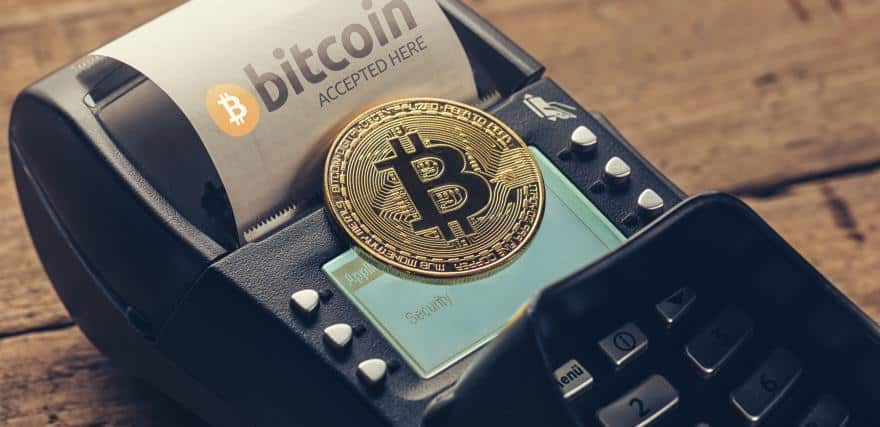Cryptocurrency adoption is on the rise globally, and South America is no exception. Mercado Libre (MELI), the second-largest company in South America with a valuation of $81 billion, has made a significant leap towards mass adoption by enabling cryptocurrency payments for real estate. This bold move not only positions Mercado Libre as an innovator but also signals a shift in how cryptocurrencies could reshape commerce in the region. With over 18 countries under its operational umbrella, including Argentina, Brazil, and Mexico, Mercado Libre’s embrace of crypto payments is a milestone for both the company and the cryptocurrency landscape in South America.
1. Mercado Libre’s Crypto Real Estate Initiative
1.1 What Does the Initiative Entail?
On April 28, Mercado Libre launched a dedicated real estate section on its platform that supports cryptocurrency payments. This section offers various properties, including houses, condos, land, and commercial real estate, in key Argentinian cities such as Buenos Aires, Santa Fe, and Córdoba. While Mercado Libre does not directly process these transactions, its endorsement of cryptocurrency payments legitimizes the use of digital assets in real estate.
1.2 The Role of Mercado Pago and Mercado Envios
Mercado Libre’s ecosystem includes:
- Mercado Pago: A robust digital payment system supporting online and offline transactions.
- Mercado Envios: A logistics arm offering warehousing, fulfillment, and shipping solutions.
Although these services aren’t directly involved in real estate transactions, their presence bolsters Mercado Libre’s infrastructure, showcasing its readiness to integrate cryptocurrency into everyday commerce.
2. Why This Matters for Crypto Adoption
2.1 Legitimizing Cryptocurrencies as Payment Systems
By enabling cryptocurrency payments for real estate, Mercado Libre provides a tangible use case for digital assets, moving them beyond speculative investments. This approach showcases how cryptocurrencies like Bitcoin (BTC), Ether (ETH), and Tether (USDT) can be practical payment methods, even in high-value transactions.
2.2 Impact on Real Estate Transactions
The process is straightforward:
- Property Selection: Buyers browse listings priced in U.S. dollars but choose to pay in cryptocurrency.
- Negotiation: Buyers contact real estate agents and agree on terms, including the exchange rate for cryptocurrency payments.
- Transaction Completion: Payments occur outside the platform, directly between the buyer and seller.
While this model is decentralized, it demonstrates the efficiency and adaptability of crypto payments in real-world scenarios.
3. Crypto Adoption in South America: The Bigger Picture
3.1 Argentina: A Case Study in Crypto Adoption
Argentina’s economic challenges, including a 10% GDP contraction in 2020 and 42.6% cumulative inflation over the past year, make it a prime candidate for cryptocurrency adoption. Digital assets provide an alternative store of value and payment method, particularly as the Argentine peso loses purchasing power.
3.2 The Role of Inflation in Driving Crypto Use
Inflation and currency devaluation have historically pushed individuals and businesses towards alternatives like cryptocurrencies. Mercado Libre’s initiative aligns with this trend, offering a practical solution for those seeking financial stability.
4. Potential Challenges and Future Implications
4.1 Challenges
- Regulatory Uncertainty: Cryptocurrency regulations in South America remain inconsistent, posing risks to adoption.
- Volatility Concerns: The price fluctuations of cryptocurrencies can complicate high-value transactions like real estate.
4.2 Future Implications
- Mainstream Integration: As more companies follow Mercado Libre’s lead, cryptocurrencies could become standard payment options across industries.
- Increased Institutional Interest: Mercado Libre’s move might encourage other large corporations to explore cryptocurrency integration.
- Financial Inclusion: Cryptocurrencies can provide unbanked populations in South America with access to global financial systems.
5. The Path Forward: Expanding Crypto Use Cases
Mercado Libre’s initiative could pave the way for broader crypto adoption in South America. Beyond real estate, digital assets could gain traction in industries like retail, logistics, and cross-border trade. This trend aligns with global efforts to position cryptocurrencies as practical tools for commerce and investment.
Conclusion
Mercado Libre’s decision to accept cryptocurrency payments for real estate transactions marks a significant milestone in South America’s journey towards mass crypto adoption. By bridging traditional commerce with digital innovation, the company is not only enhancing its platform but also contributing to a broader cultural shift in how we perceive and use cryptocurrencies. As inflation and economic instability continue to challenge South American economies, initiatives like Mercado Libre’s could offer a beacon of hope, showcasing the transformative potential of blockchain and digital assets.
To learn more about the innovative startups shaping the future of the crypto industry, explore our article on latest news, where we delve into the most promising ventures and their potential to disrupt traditional industries.
Disclaimer: The information provided is not trading advice, Bitcoinworld.co.in holds no liability for any investments made based on the information provided on this page. We strongly recommend independent research and/or consultation with a qualified professional before making any investment decisions.

